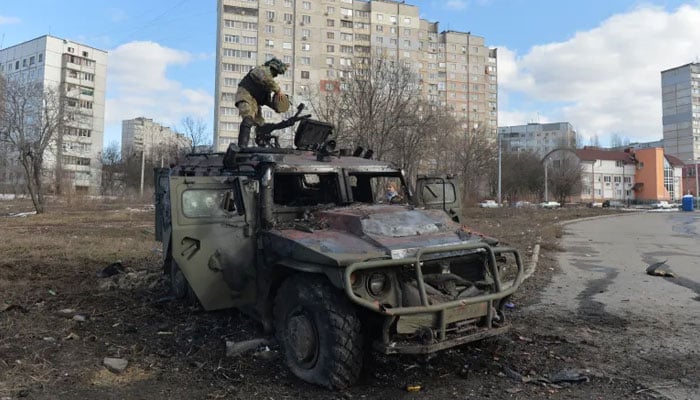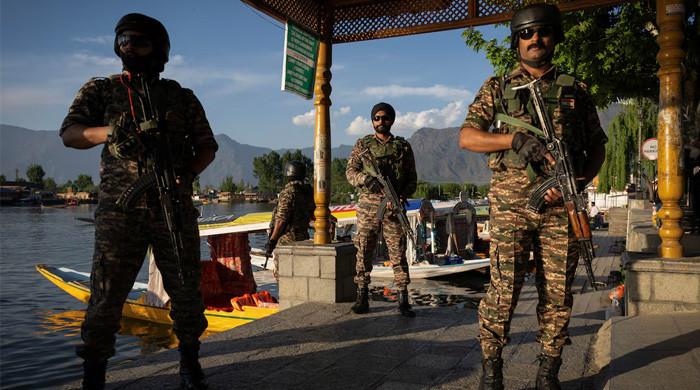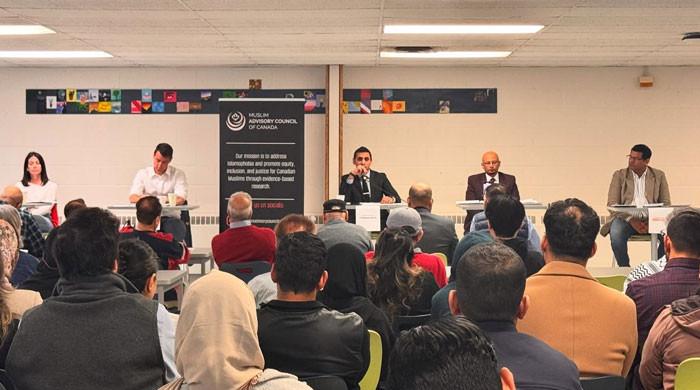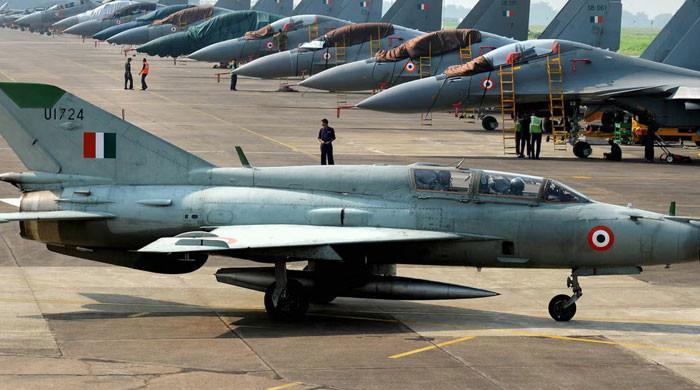Ukraine war & US withdrawal from Afghanistan
With public losing interest in Afghan war, President Biden announced to bring longest war in American history to an end and bring troops home
April 14, 2023

‘To Jaw-jaw is always better than war-war’, Winston Churchill
Last week, White House has issued a 12 page dossier outlining the key decisions and challenges surrounding the US withdrawal from Afghanistan.
According to the White House, ‘ Two decades after the war had started, America had become bogged down in a war in Afghanistan with unclear objectives and no end in sight and was underinvesting in today’s and tomorrow’s national security challenges.
So, to end the war and focus on future security challenges, Washington sought peace with the Taliban and hence withdrew from Afghanistan. Is the story so simple?
The current and undisputed rulers of Kabul were long considered militant and enemy by the United States of America.
There is little doubt that American public had gradually lost interest in the never-ending Afghan war. So, no surprise that President Biden also committed to bring the longest war in American history to an end and bring American troops home. The only question was how and when?
Former House Foreign Affairs Committee Chairman Eliot Engel once said, ‘You don’t want our enemies to feel like they drove us out. On the other hand, you don’t want to never leave’.
Can this reason be justified to end a seemingly perpetual war launched by the then Republican president George Bush after 9/11 attacks? And, that too against a country labelled by his Democrat successor Barrak Obama as an ‘epicenter of violent extremism where our national security is at stake.’ In more clearer words of his secretary of states, Hillary Clinton, ‘not going to talk to the really bad guys because the really bad guys are not ever going to renounce Al Qaeda and renounce violence and agree to re-enter society.’
Well, today, Taliban are ruling the very society.
So, was it only a matter of public disinterest? At least, the United States of America had waged Iraq war after creating public feelings against Saddam Hussain’s alleged weapons of mass destruction. It clearly shows that military establishment develops interest for the war and decides when to wind it up.
In the last few decades, the world has witnessed one war after another and each was waged to achieve similar goals.
At the end of Afghan war, a new theatre in Ukraine is opened. Is it mere coincident that United States tried to establish bases in some central Asian countries before leaving Afghanistan?
In mid-2023, Pentagon officials had discussed security cooperation with their Uzbek counterparts. Uzbekistan borders, Kazakhstan, Kyrgyzstan, Tajikistan, Turkmenistan and Afghanistan. Hence, it is the most strategically important central Asian country.
Calculating the risks, Moscow warned Central Asian states of hosting American troops and expressed hope that no one would be interested in ‘becoming a hostage to such US policy and intentions, and in inviting retaliation.’
Russia had firm belief that by seeking to establish new bases in this region, Pentagon had a greater design. It argued that if 100,000 NATO troops inside Afghanistan failed to do anything, how they would keep a check on the militants with a relatively insignificant redeployment in neighboring countries of Afghanistan.
According To Sergei Lavrov, the foreign minister of Russian Federation, ‘most probably, they simply want to ensure their military presence in Central Asia and be able to influence the situation in this region.’
Earlier, Kyrgyzstan had hosted an American military base against Afghanistan but it was closed down in 2014. Uzbekistan had done the same much earlier in 2005. Thus, by ensuring that no central Asian country hosts US troops on the ground, Russia, with the help of China, secured huge and one of the most sensitive border.
Apparently, Moscow and Beijing equally made sure that Taliban don’t antagonize Kyrgyzstan and Uzbekistan as that could encourage those countries to host US troops for added protection.
Yet, Moscow couldn’t stop developments taking place in Kiev. Ukraine’s 2004 Orange Revolution and 2014 Euromaidan Revolution were clear warnings for Moscow to see what lies ahead. First incident stopped Pro-Kremlin Viktor Yanukovych from winning power and helped Pro-West Viktor Yushchenko secure Presidency.
Though, Yushchenko failed to secure another term but steps taken during his first reign were enough to help topple Yanukovych who had managed a comeback in 2010. The goal was achieved through Euromaidan uprising against Yanukovych in 2014.
These developments took place at a time when Afghan President Hamid Karzai was trying to reconcile with Taliban by launching ‘Program for strengthening of Peace’ in 2010.
This effort didn’t materialize much but on 18 June 2013, Taliban political headquarters was opened in Doha.
Nevertheless, it took years to bring all Taliban factions on the same page and negotiate what turned out to be Doha deal. This relative peace was achieved only when Ukraine theatre started opening up.
Fearing hotspots emerging around its borders, Moscow gave a stunning warning to President Biden during his 2021 summit with Russian counterpart, Vladimir Putin about putting American boots in Central Asia.
In an interview published in Mezhdunarodnaya Zhizn magazine, Russia’s Deputy Foreign Minister Sergei Ryabkov explained the narrative.
‘I would emphasize that the redeployment of the American permanent military presence to the countries neighboring Afghanistan is unacceptable. We told the Americans in a direct and straightforward way that it would change a lot of things not only in our perceptions of what’s going on in that important region, but also in our relations with the United States.’
It’s an open question if United Sates had winded up Afghan war in view of Ukraine? Yet, it claims to have learnt some lessons before entering into a bigger mess.
According to the White House, ‘ Our experience in Afghanistan directly informed the Administration’s decision to set up a small group of expert (tiger team) for worst-case scenario planning on Ukraine-including simulation exercises-months ahead of Russia’s invasion’.











